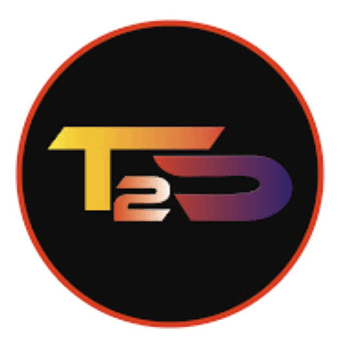My previous article in the series, “Hope is here,” talked about how to find hope when we feel weary.
In the following lines, we’ll reflect on the second part addressing our brokenness and how we can find hope again.
Let me ask you first to take a look at this scripture, which we will use as the foundation for this article:
“The Spirit of the Lord is on me because he has anointed me to proclaim good news to the poor. He has sent me to proclaim freedom for the prisoners and recovery of sight for the blind, to set the oppressed free, to proclaim the year of the Lord’s favor.” Then he rolled up the scroll, gave it back to the attendant and sat down. The eyes of everyone in the synagogue were fastened on him. He began by saying to them, “Today this scripture is fulfilled in your hearing.” Luke 4:18-21.
A Little Bit of Context
You may have read this story before, once or many times, just as I have done. You have to understand that Jesus, being the one to read scripture this day, was scheduled to do so.
According to the Jewish tradition, families took turns leading worship. The oldest male in the family would represent his entire family when their turn comes to do so.
It happened that the turn for Jesus’ family to do it coincides with his return from being baptized and tempted in the wilderness for forty days, based on our scripture.
Don’t then think that Jesus went to the front of everybody as a result of being the Son of God and the Christ.
If you read the rest of the chapter, Jesus ended up being rejected by his own people in Nazareth where he grew up. Also, Jesus had to read scripture and share a little bit of reflection because he was the oldest male among Joseph and Mary’s children.
Jesus The Only Hope for the Broken
Let me point out first that the scripture Jesus reads is from Isaiah 61. It’s a promise God had made to the Israelites through the Prophet Isaiah about the Messiah.
The Messiah isn’t a regular person:
- The Spirit of the Lord (Yahweh) is upon him.
- He will have God’s anointing. See verse 18.
In other words, God’s power to redeem, heal, save, renew, sanctify, and more, resides in this unique human being.
Since we all are sinners. This being had to be with no sin in order to allow the fullness of who God is to reside in him. That’s why we talk about the virgin birth (with Mary to bear the Son of God as her baby), which was made possible only through the power of the Holy Spirit.
Here’s how I see it. God, the Father plans it, and God, the Holy Spirit made it happen through the virgin Mary.
Therefore, Jesus had (when he was on earth), and still has power to:
- proclaim good news to the poor.
- proclaim freedom for the prisoners and recovery of sight for the blind.
- set the oppressed free.
- proclaim the year of the Lord’s favor. See verse 18.
Four Types of Brokenness
Based on Luke 4, it’s clear that God’s mission for sending Jesus to us doesn’t only have to do with eternal life. It’s also about the present life, your current struggles, and brokenness.
As stated above, Jesus has the power to deal with our brokenness. He said it after reading from Isaiah,
Then he rolled up the scroll, gave it back to the attendant and sat down. The eyes of everyone in the synagogue were fastened on him. He began by saying to them, “Today this scripture is fulfilled in your hearing.” Luke 4:21.
Of course, his own people didn’t receive it well even though it’s true that Jesus came to deal with our brokenness on all levels of life: spiritual, mental, emotional, and physical.
Jesus came to do four things:
- To proclaim good news to the poor.
- To proclaim freedom for the prisoners
- To proclaim recovery of sight for the blind.
- To set the oppressed free. See verse 18.
The above represents not only what exactly Jesus came to do for us. It also points out the four levels of brokenness we experience as humans:
- Poverty.
- Captivity (bondage).
- Blindness.
- Oppression.
As human beings, we all deal at least with one of the above.
Poverty as a Form of Brokenness
Being in poverty doesn’t always have to do with money or limited financial resources to meet your needs.
It means the following:
- The feeling of being inferior.
- The feeling of not being able to meet your needs: emotional, mental, intellectual, spiritual, physical.
- The state of being in an unfulfilled longing.
Just feeling so poor, as stated above, breaks you. The good news is that Jesus came for the poor that you and I are. He came to proclaim the good news to us all, the poor.
Captivity as a Form of Brokenness
Most of us are very familiar with this type of brokenness. You may have heard of spiritual bondage, and so forth.
When you think of captivity (or bondage), you should know this:
- You’re dealing with something you can’t get rid of. It could be a bad habit in the form of addiction, sin, etc.
- You have someone or something that dictates what you think, say, or do, and you have no power to do otherwise.
- Someone or something is ruling over you and your life.
Also, we should keep in mind that anything, including religion or Church, can make us captive. But, Jesus came to proclaim freedom for you and me, the prisoners (or captives of anything).
Blindness as a Form of Brokenness
The Bible has lots of places where the word “blind” comes up. And, remember this is not just physical blindness, but spiritual.
There’s an exercise I do at times as part of my home workout routines. I first saw it in a movie.
What you do is you lift one of your knees to form like a 90 degrees angle. Then, touch your lifted knee with the palm of your hand. You can place your hand on your thigh but closer to the knee.
Using the other hand, touch your nose, and close your eyes. Stay standing for at least 50 seconds.
Honestly, to this day, I’ve never remained standing for over 15 seconds.
What makes this exercise very difficult is when you get to the point of closing your eyes. At that point, you begin losing balance and so much is going on in your mind that you would decide to bring your knee down avoiding falling.
Blindness implies that:
- You do not see.
- You have lost clarity.
- You have no control.
- You have no balance.
- You have no sense of direction.
The good news is that Jesus came to proclaim the recovery of sight to the blind that you and I are.
Oppression as a Form of Brokenness
The state of being oppressed means you have some burden that is heavily weighing on your mind. In other words, it’s the situation whereby you are heavily burdened mentally or physically.
That’s a condition we may be in at times, or for a long time.
There could be many causes of oppression:
- Anxiety.
- Adverse conditions and troubles.
- Illnesses.
- Unwanted changes, and more.
Again, the good news, according to Luke 4, Jesus came to set the oppressed free.
In Conclusion
Jesus came to proclaim the year of the Lord’s favor. He’s the embodiment of God’s work to heal us from any form of brokenness: blindness, oppression, poverty, and bondage. And, it’s already done for us.
What we only have to do is to accept the gift that God has already made available for us all. Yes, Jesus will help you see again, and set you free from any bondage. Jesus has the power to get you out of any form of poverty and oppression. He just wants to walk with you, as you also choose to walk with him.

